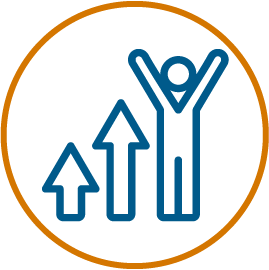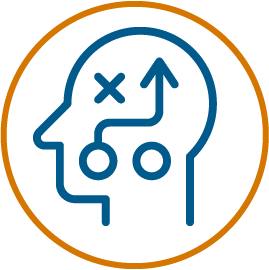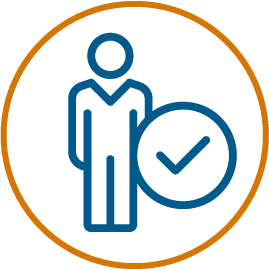Learn to unpack key issues and challenges facing the sustainable seafood industry.
Program Type
Professional Development
Semester Start
Fall, Spring, Winter
Study Options
Online
Minimum Duration
7 Months
UMass Boston’s Sustainable Marine Aquaculture Certificate focuses on preparing you to successfully address key issues and challenges facing the aquaculture industry to ensure sustained growth. It’s designed for professionals already working in the field, students who are looking to gain additional industry expertise, and individuals trying to break into the aquaculture industry who want to hone their skills and add a certification to their résumé. Learn the business of aquaculture — the breeding, rearing, and harvesting of fish, shellfish, plants, algae, and other organisms in all aquatic environments — and explore ways to make this growing and rapidly expanding industry more sustainable. With an Aquaculture Certificate, you can work in both the private and commercial sectors as an oyster farmer, seaweed cultivator, or processor, or you could work on a fish farm as a technician, general worker, scientist, engineer, or manager. You could also work for a regulatory agency working towards maintaining healthy sustainable practices.
If you’re trying to break into the growing and rapidly expanding aquaculture industry, you’re already working in the field, or you are a student looking to add additional expertise to your résumé, sign up to take a course or to declare the certificate program. We offer courses and certificates for academic credit and for continuing education credits. Taking an aquaculture class could also help you secure an internship working outdoors and on the oceans.
All courses in UMass Boston’s Sustainable Marine Aquaculture program are open to the UMass Boston community as well as students from other universities and the public. Our goal is to provide a flexible and accessible introduction to this emerging field and so offer a variety of options to suit your individual needs.
Tuition
- The credit bearing program consists of three 3-credit courses, or 9 credits. The non-credit bearing program consists of three courses.
- Online tuition is $500 per course for the non-credit bearing program
- Online tuition is $630.51 per credit for the credit bearing program.
- Total estimated cost to complete the non-credit bearing program is $1,500.
- Total estimated cost to complete the credit bearing program is $5,674.59.
- Estimate is based on completing program by minimum duration. Other fees may apply. Request Info to connect with a program representative for further details.
Credit-Bearing Program
- Introduction to Sustainable Marine Aquaculture (Credit-Bearing Course ID: ENVSCI 114) (Non-Credit Course ID: USEA-NC 114)
Get an introductory overview of marine aquaculture with a specific focus on the principles of sustainability in the production and distribution of marine-sourced foods. Explore the culturing and rearing of marine invertebrates and plants. Building on a general overview of marine aquaculture, you’ll study the physical and chemical properties of the aquatic environment; site selection; aquatic engineering; bivalve culture; crustacean culture; seaweed culture; health and pathology; growth and nutrition; genetics and reproduction; and legal, economic, social and environmental considerations. These topics will be covered with both a local and global perspective. You’ll also be familiarized with the multidisciplinary nature of sustainable marine aquaculture as a field. The course will conclude with a brief overview of the legal, economic, and social considerations and you’ll look at some of the controversies surrounding marine aquaculture and environmental sustainability. - Aquaculture Production (Credit-Bearing Course ID: ENVSCI 124) (Non-Credit Course ID: USEA-NC 124)
Get an overview of animal production and associated environmental and regulatory aspects of the industry. You’ll study aspects of business and market development for cultured products with special focus on marine aquaculture and shellfish. - The Business of Marine Aquaculture (Credit-Bearing Course ID: ENVSCI 134) (Non-Credit Course ID: USEA-NC 134)
Examine the elements of working in and managing a successful aquaculture operation. Aquaculture is currently the fastest growing segment of the food industry, with about half of what we eat from the ocean coming from aquaculture. This is an increasingly competitive space that suffers from a tradition of malpractice and misunderstanding, as well as a regulatory culture that lags far behind an innovative rate. Site selection, gear, seed and feed procurement, marketing, and supply chain dynamics are all important elements of a successful aquaculture operation that demand an understanding of regulatory, financial, and marketing and entrepreneurial principles. You’ll get an introduction to these challenges and will gain the tools needed to engage within the industry on a sophisticated, successful level.
At the end of this two-semester program, you’ll be awarded a professional certificate in Sustainable Marine Aquaculture. After taking online aquaculture classes from UMass Boston, you will have a basic foundation in the field of aquaculture. The certificate will demonstrate your expertise in the field on your résumé, as well as in interviews and workplace evaluations.
This certificate prepares you for a career in commercial and private sectors and regulatory agencies, as well as multiple other careers. You could work for a fish farm, oyster farmer, seaweed cultivator, or processor both in the commercial and private sectors.
Fish farms hire technicians and general workers to:
- carry out collection
- feed
- monitor stock
- identify any problems or diseases
- run the hatchery to provide a consistent inventory to new stock
Fish farms hire scientists to implement strategies that will maintain the healthy growth of fish stocks. Fish farms hire engineers to be in charge of equipment and machinery such as water pumps, water treatment devices, boats, and upwellers. Managers oversee everything and deal with budgets and accounting, client meetings and sales, risk assessment, and insurance and policy-related issues.
With your certificate in Sustainable Marine Aquaculture, you could also work for a regulatory agency working towards maintaining healthy sustainable practices.
Why UMass Boston Online?
Value
Among the lowest online tuition rates of an accredited, public research university.
Flexibility
Study full-time to finish fast, or part-time to suit your schedule. Live sessions scheduled with the working professional in mind.
Authenticity
The same courses taught by the same academic departments as on campus. No third-party providers.
Learn More
Get the inside scoop on the program and connect with the people who run it.
Sustainable Marine Aquaculture Certificate
Learn More




